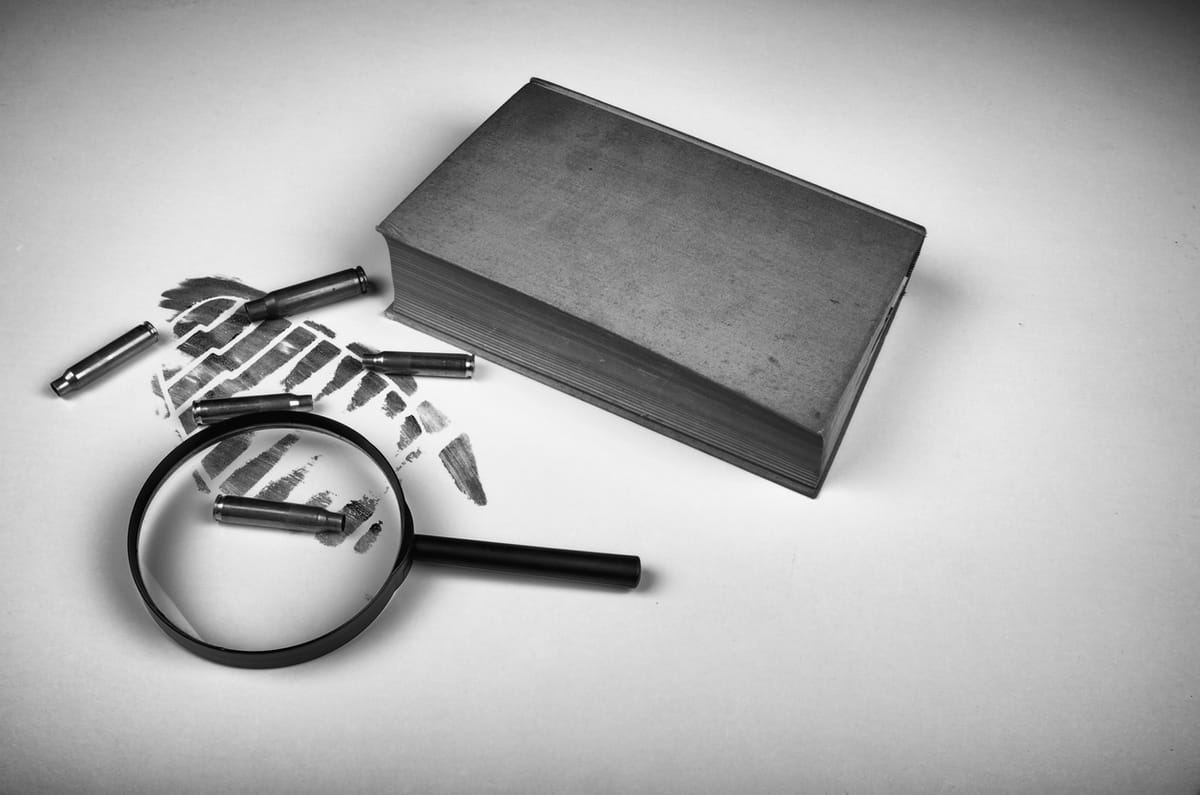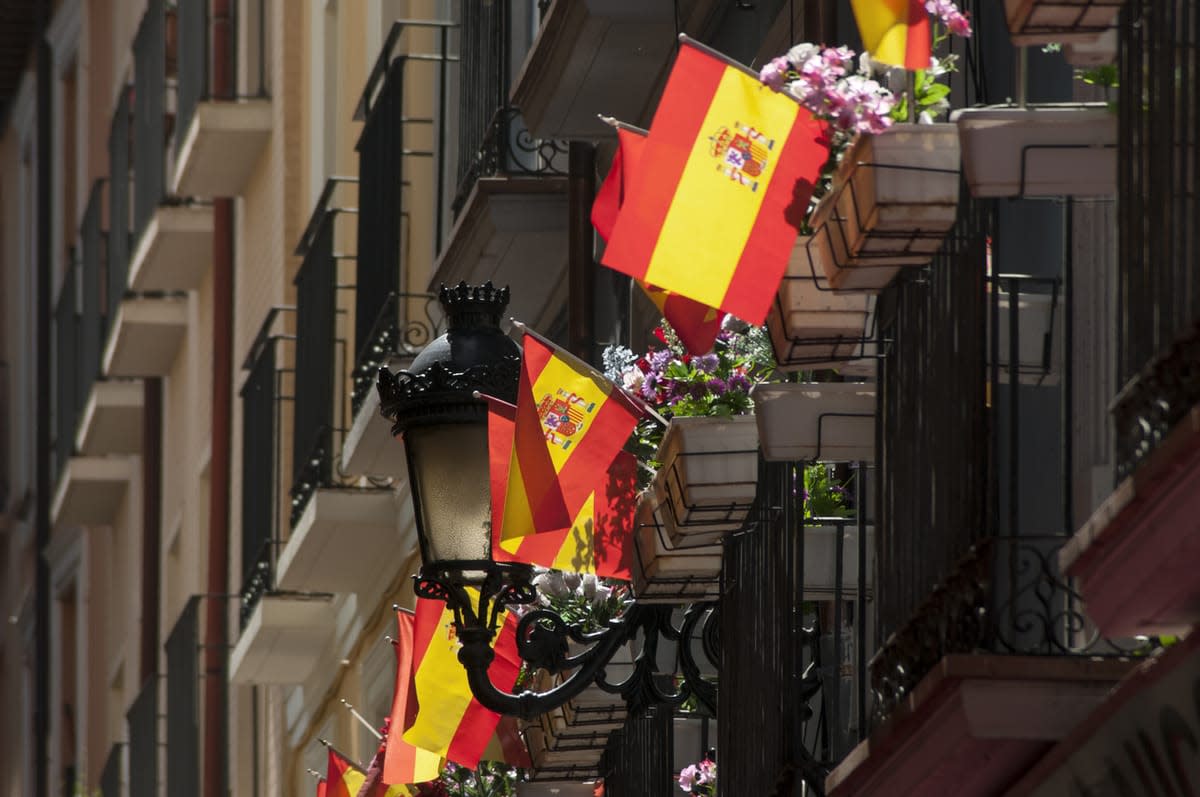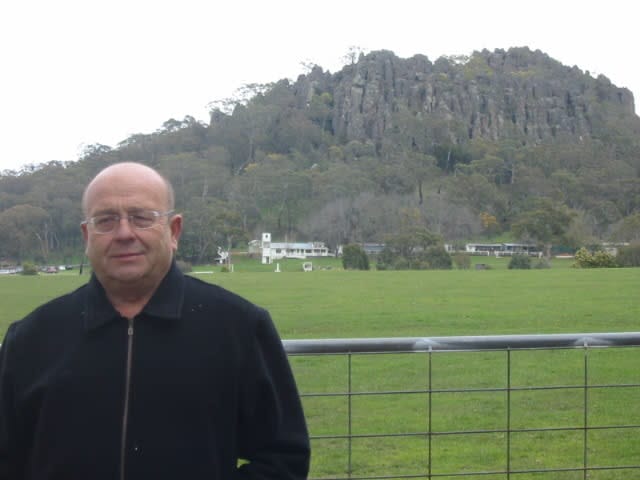
Pepe Carvalho is a Spanish private eye – cynical, kind-hearted, a womaniser, a drunk. He burns books as kindling for his fire, and prepares elaborate Spanish dishes in the small hours when he can’t sleep.
Carvalho works in Barcelona, which is where most Spanish crime books happen to be based, says Spanish literature scholar Dr Stewart King. Carvalho is his favourite Spanish investigator, and he’s been considering his legacy in the book he’s writing about what Spanish crime fiction tells us about modern Spain.
“After Franco died in 1975, crime writers used the genre to reflect on Spanish identity, and there was also a flourishing of crime fiction in Basque, in Catalan and in Galician as well, which are the other three official languages of the Spanish state,” Dr King says. These languages were suppressed during the Franco years (General Franco was the military dictator who ruled Spain after the 1939 nationalist victory in the Spanish Civil War until his death).
Dr King is fluent in Spanish and Catalan, and he can read Galician, too. All are Romance languages, which helps, he explains. But Basque isn’t a Latin-based language, or even an Indo-European one – he reads it in translation.
Pepe Carvalho is an interesting case, because he’s part Catalan, part Galician, and his creator, Manuel Vázquez Montalbán, wrote in Spanish. “He was a very important Spanish public intellectual,” Dr King says, a member of the anti-Franco opposition who was jailed for his beliefs, and a writer of experimental poetry. Pepe Carvalho was created when Montalbán attempted to prove he could write a detective novel in two weeks, after someone bet him that it couldn’t be done.

“He went into a house in the country that belonged to his wife’s family, with his cat, spent two weeks and wrote a crime novel, which was a political crime novel. He used the genre to reflect on the changes in Spain with the transition to democracy. He wrote the first one just before Franco died, and the last one came out just after he [Montalbán] died in 2003.”
Dr King looks pensive at the mention of Montalbán’s death, explaining that he personally knew and admired the author. “He died after doing a lecture tour of Australia and New Zealand, which I helped to organise,” Dr King says. “On his way home he had a massive heart attack at Bangkok airport”, and died there.
Franco's legacy
A sub-genre of Spanish crime fiction is concerned with the territory that preoccupied Montalbán in the Carvalho novels – the legacy of the Spanish Civil War and the Franco dictatorship, and how they affected Spain during its transition to democracy.
Dr King argues that it’s no coincidence that these novels describe and punish crimes that the Spanish state had decided to overlook.
“In 1977, the government in Spain passed a law saying that for the period of the dictatorship, if people committed crimes for political reasons they were to receive amnesty, and that included people who hadn’t actually been charged for any crimes they may have committed. So, Franco’s police officers, or the secret police, they were all free; they couldn’t be brought to trial.”
The writer gets to an audience who won’t pick up a history book and read it necessarily. And it’s not history, it’s a form of cultural memory.
Any atrocities committed by the state remained unacknowledged and unpunished. “The powers that be of the transition decided they weren’t going to talk about the past, they were just going to look towards the future,” Dr King says. “And this went along for a little while, but then it sort of bubbled up and people started talking about the past. And it comes out in crime fiction.”
He says a similar pattern can be seen in Stieg Larsson’s ‘Dragon Tattoo’ trilogy, which examines the hidden Nazi sympathies in Sweden’s past – a shameful legacy that largely goes unrecognised in progressive, prosperous Sweden today. Crime novels can provide a means of describing the shadow state, Dr King says.
“Most people don’t want to read these awful tales, but they get hooked in by the plot, which then allows the writer to raise a lot of issues,” he says. “So, people who aren’t necessarily interested in thinking about the past in Spain will pick up a crime novel and go, ‘I’ll be interested in this’. And the writer gets to an audience who won’t pick up a history book and read it necessarily. And it’s not history, it’s a form of cultural memory. It’s the stories that a society tells about itself.”
A stranger's inspiration
He began learning Spanish at LaTrobe University when he was 20 after taking up the suggestion of a stranger who picked him up in Wangaratta when he was hitchhiking to Sydney.

“I was unemployed, during one of the recessions that we had to have,” he recalls. “I thought, ‘I’ve got to do something or I’ll go mad’, and remembered this advice from this unknown driver, whose name I can’t remember. He changed my life. I decided to have a go at learning Spanish.”
Dr King is now a senior lecturer in Spanish and Latin American studies at Monash University. On 24 September last year, he was one of 58 foreign experts from 35 countries honoured by King Felipe VI of Spain for his contribution to Spanish and Latin American studies. Dr King was a guest of the Duke and Duchess of Soria Cultural Foundation.
King Felipe was “quite relaxed”, he says. “We were not given any instructions on how to address him; no one was called to curtsey or to bow.
“My father knows his father, so I said that to him, and he said, ‘Ah, sí?’. My father used to organise tours of visiting heads of state and members of royal families to Australia. In 1988, the year of the Bicentennial, he organised the trip by King Juan Carlos and Queen Sofía to Australia. I got to tell him that and that was really the end of our conversation – because what do you do with that?”





